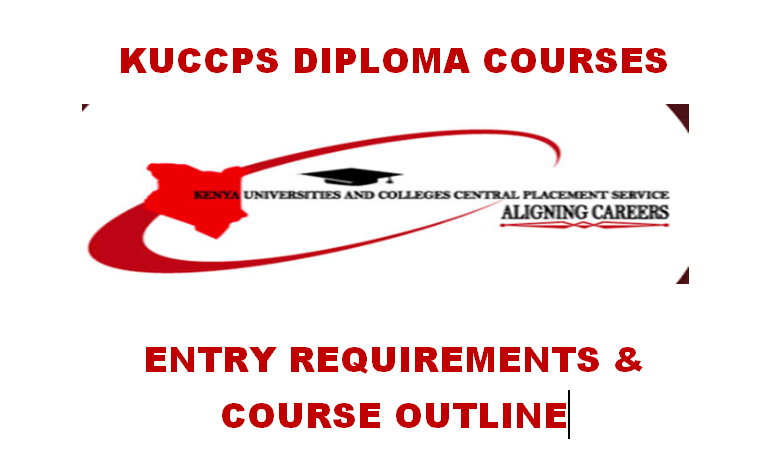The aim of fashion and design courses in Kenya is to equip the trainee with relevant knowledge, skills and attitudes to enable him/her to efficiently carry out fashion designing and clothing technology tasks in order to produce quality and marketable garments and articles.
Fashion and design courses in Kenya requirements
Fashion and design courses in Kenya can be either Artisan, craft /certificate, diploma, higher diploma and bachelors degree and here are the requirements;
| COURSES OFFERED | DURATION | EXAMINING BODY | ENTRY REQUIREMENTS |
| ARTISAN | 1 YEAR | KNEC | D- . |
| CRAFT | 2 YEARS | KNEC | D+, no cluster subject required. |
| DIPLOMA | 3 YEARS | KNEC | C-, no cluster subject required. |
| HIGHER DIPLOMA | 2 YEARS | KNEC | DIPLOMA |
| Bachelors degree | 4 years | KNQA | C+, no cluster subject required. |
The Artisan in Fashion Design course aims at producing competent tailors/dress makers capable of making various types of garments suitable for men, women and children.
The Craft Certificate in Fashion Design and Garment Making Technology course is concerned with classifying textile materials, communicating effectively, use computer skills and carry out a given task in yarn and fabric formation in order to produce textile materials.
Diploma in fashion design and garment making course will require a minimum KCSE grade of C-. There is no cluster subject required. Those who have done a Craft certificate in Clothing Technology and passed can proceed to a diploma level.
A Bachelor’s degree in Fashion and Design is a three-year or four-year undergraduate degree that gives students solid training in the most recent developments of the fashion industry.
colleges offering fashion and design in Nairobi
Apart from the top public colleges, universities and TVETs, here are some of the other colleges offering fashion and design courses in Nairobi
Mcensal School Of Fashion Design
Delight School Of Fashion & Design
The B.A Fashion Institute
East Africa Institute Of Certified Studies
Diploma in Fashion and design course units
MODULE I
- Information Communication Technology
- Entrepreneurship
- Communication Skills
- Textile Science I
- Clothing Construction I
- Art, Fashion Design and Sketching I
- Cutting Technology I
- Pattern Construction I
- Science
MODULE II
- Industrial Organization Management and Quality Control I
- Textile Science II
- Clothing Construction II
- Fashion Design and Sketching II
- Cutting Technology II
- Pattern Construction II
- Grading Techniques I
MODULE III
- Industrial Organization Management and Quality Control II
- Clothing Construction III
- Fashion Marketing
- Pattern Construction III
- Grading Techniques II
- Project
There are many advantages to choosing a career in fashion design and technology, including the salary range and the freedom to create cutting-edge designs. Fashion designing also provides opportunities for travel and exposure to fashion trends and ideas. After identifying the units offered for the diploma in fashion design and cloth technology course one of the main question is always the benefits which include and are not limited to;
- Develop key management skills.
- Employability or self employment
- An introduction to the business world.
- Improved Proficiency.
- Develop Universal Relevance.
- Better Promotion Prospects.
- Job Security.
- Better Personnel Management Skills.
- Have Job Satisfaction.
- Good drawing skills – You have to set this ability to become a good fashion designer.
- Knowledge of fabric, technique and color – If you are familiar with clothes and color, you can design great clothes.
- Strong visualization playing a big role in sketching.
COURSE OUTLINES AND ENTRY REQUIREMENTS
Agriculture courses and requirements
Daystar university courses and requirements
Zetech university certificate courses and requirements
Kttc courses and requirements KSTVET
6 months certificate courses in Kenya
Mku certificate courses and requirements
Qualifications for diploma in medical engineering
Medical engineering salary in Kenya
Types of electrical licenses in Kenya
Electrical engineering business plan
Qualifications for electrical engineering in Kenya
Electrical engineering salary per month
Diploma in electrical engineering salary in Kenya
Electrical engineering attachments in Kenya
KCSE requirements for accounting
Diploma in Food and Beverage in Kenya
Food and beverage control KNEC past papers
Trade project samples in food and beverage
Qualification for medical engineering
Which kmtc offers certificate in medical engineering
Mechanical engineering plant option
Between it and ict which is more marketable
Certificate in ict requirements
Best colleges offering ict courses in Kenya
Diploma in automotive engineering salary in Kenya
Automotive engineering module 1 pdf
Automotive engineering courses in Kenya
Mechanical engineering attachment Kenya
Automotive engineering courses
Certificate in automotive engineering salary in Kenya
Mechanical engineering production option
Certificate in mechanical engineering

